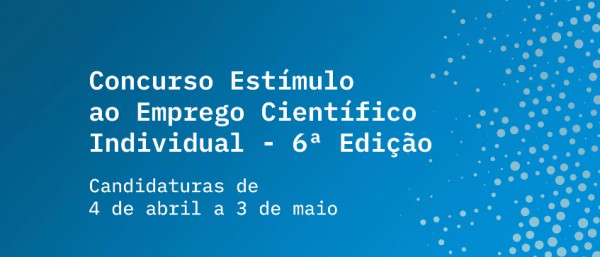The Centre for Environmental and Marine Studies (CESAM), an Associated Laboratory of the University of Aveiro (UA), Portugal, welcomes applications for six-year research contracts, funded by the National Foundation for Science and Technology (FCT), acting as host institution, in the framework of the sixth edition of the Individual Call to Scientific Employment Stimulus.
Working at CESAM means being a member of an international collaborative and transdisciplinary network that gathers more than 220 PhD researchers with knowledge and expertise on fundamental and applied research in the natural and social sciences, which is a unique asset in an Associated Laboratory in Portugal.
CESAM is committed to policy challenges related to adaptation and mitigation of climate change; regional, national and EU policies on water (freshwater and marine) and natural resources, including biodiversity, environmental health and sustainable development.
CESAM’s research is transversal, covering the biosphere, atmosphere, hydrosphere, lithosphere and anthroposphere. The team holds expertise in:
- Modelling and forecasting of atmospheric and hydrodynamic (freshwater, coastal & oceanic) processes;
- Terrestrial and aquatic (including deep sea) biodiversity, mineral and energy resources, ecosystems structure, functions and services, and risk assessment from sub-cellular to ecosystem levels;
- Development and validation of environmentally friendly technologies, analytical chemistry, marine geophysics, and ecotoxicological methods considering multiple stressors;
- Development and application of environmental management tools based on life cycle thinking, such as life cycle assessment, life cycle sustainability assessment, and carbon and water footprints;
- ‘Omics’ technologies and bioinformatics;
- Stakeholder engagement, participatory methods and environmental planning.
Applicants with a relevant track record of obtaining competitive funding for research activities are especially welcome.
To apply, please send us the following documents and information by 17 April 2023:
- A summary of the work plan (max. 2500 characters);
- CV synopsis (max. 500 characters) and CienciaVitae link;
- A motivation letter explaining your trajectory in the last five years and the relevance of your achievements to CESAM´s Thematic Lines objectives and CESAM´s mission (max. 2000 characters);
Please submit your application material or any questions that may arise to Ana Santiago by email anas@ua.pt.
All selected candidates must submit the proposals directly in myFCT platform. CESAM staff can provide support, if necessary.
Prospective applicants should present their research plan bearing in mind the CESAM’s scientific plan, reflected on our four Thematic Lines:
Environment & Health
Marine Ecosystems & Resources
Ecology & Functional Biodiversity
Integrated Environmental Systems
The Environment & Health Thematic Line (EH), according to Adelaide and Regina Duarte (line coordinators), “is focused on the growing evidence of the role of the environment as a determinant of human health. The objectives of EBH TL are aligned with WHO programmes on public health and environmental health and also meet several goals of the European Green Deal and of the 2030 Agenda for Sustainable Development. The development of EH TL objectives is supported by collaborative projects and protocols with National and International research centres, hospitals and healthcare professionals, and stakeholders”.
Our second thematic Line, the Marine Ecosystems & Resources line (MER), as stated by Ulisses Azeiteiro and Nuno Vaz (line coordinators) “aims to contribute to a Blue Society, where solutions are inspired by the ocean; and improve ocean and coastal decision-making, supported by solid scientific knowledge and then being an actor of a Sustainable Blue Economy and fostering Ocean Literacy”.
Our third thematic line, the Ecology & Functional Biodiversity line, as mentioned by Isabel Lopes and Nelson Abrantes (EFB coordinators): “aiming at unravelling the functional role of biodiversity in terrestrial and aquatic ecosystems and the services they provide, this line promotes fundamental and applied research that contributes for a better understanding of the natural world under global changes. The produced scientific-knowledge aims to support public environmental strategies, directives and policies and decision making, at regional, EU and international level”.
Finally, and as stated by Ana Isabel Miranda e João Dias (Integrated Environmental Systems Themathic Line coordinators), “Doing research in Integrated Environmental Systems is about taking care of the environment considering different processes, reservoirs and synergies, and addressing two main priorities: risk assessment and climate change adaptation; and resource efficiency and transition to a zero carbon and circular economy. IES researchers aim therefore to actively contribute to green and blue growth, promoting the environmental resources efficient use, seeking adaptation and mitigation measures to climate change and building resilience to disasters”.
To know more about our thematic lines visit https://bit.ly/3lBVUC9
